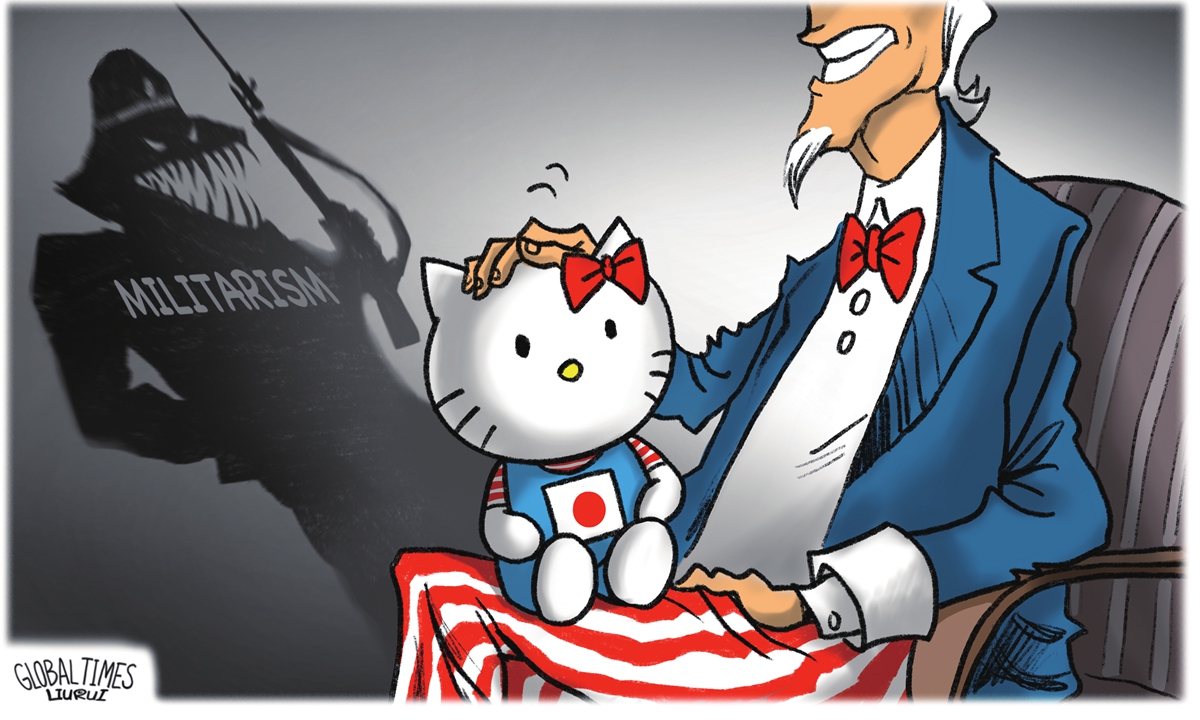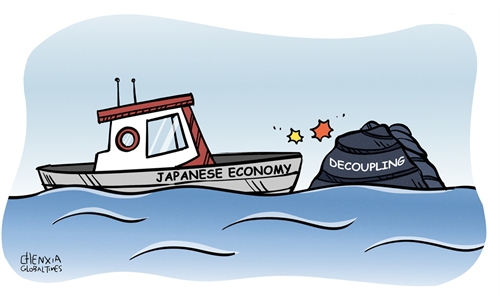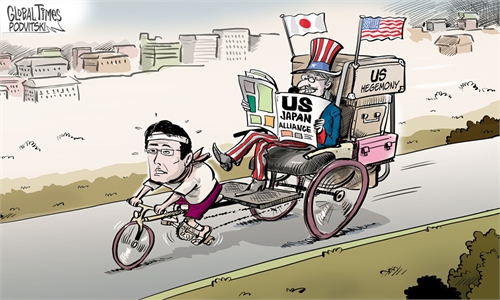China-targeting containment looms large in Japan-US alliance as Kishida kicks off visit to 5 G7 nations

Japan Illustration: Liu Rui/Global Times
As Japan's Prime Minister Fumio Kishida will kick off a five-nation trip to France, Italy, the UK and Canada on Monday before meeting with US President Joe Biden at the White House on Friday to strengthen the Japan-US alliance, analysts predict that some already formulated measures to counter China will be further confirmed and promoted toward implementation under the Japan-US alliance.
As his first official visit to the White House, Kishida said at a press conference that the summit with Biden would be an opportunity to "demonstrate at home and abroad the further strengthening of the Japan-US alliance" and to "establish closer cooperation to realize a free and open Indo-Pacific," the Asahi Shimbun reported.
According to the White House, Kishida and Biden will discuss a range of regional and global issues including North Korea, Ukraine and maintaining peace and stability across the Taiwan Straits. "Biden will reiterate his full support for Japan's recently released National Security Strategy… The leaders will celebrate the unprecedented strength of the US-Japan Alliance and will set the course for their partnership in the year ahead," said the White House statement.
Analysts believed that during Kishida's meeting with Biden, he will explain, further confirm and promote implementations on specific items of security and defense cooperation, especially measures to counter China.
Da Zhigang, director of the Institute of Northeast Asian Studies at Heilongjiang Provincial Academy of Social Sciences, told the Global Times on Sunday that Kishida's visit to the US is more like "a worship trip" to satisfy Biden, the US Congress and the military amid the three revised national security strategy documents which position the Japan-US alliance as the base axis of Japan's national security strategy.
Japan in December 2022 adopted a set of three security and defense strategy documents where the country labeled China as an unprecedented "strategic challenge" and vowed to possess the capability to launch counterstrikes against facilities such as missile-firing sites and other enemy targets.
Besides the Taiwan question, Da said the two sides may also hype that the US has the obligation to defend the Diaoyu Islands for Japan if China and Japan have a dispute over it.
According to a white paper released by China's State Council Information Office in September 2012, Japan's occupation of the Diaoyu Islands during the Sino-Japanese War in 1895 was illegal and invalid.
After World War II, the Diaoyu Islands were returned to China in accordance with such international legal documents as the Cairo Declaration and the Potsdam Proclamation. No matter what unilateral step Japan takes over the islands, it will not change the fact that the islands belong to China.
For quite some time, Japan has repeatedly stirred up trouble on the issue of the Diaoyu Islands. On September 10, 2012, the Japanese government announced the "purchase" of the Diaoyu Island and its affiliated Nanxiao Island and Beixiao Island, and the implementation of so-called nationalization. This move grossly violated China's territorial sovereignty and seriously trampled on historical facts and international jurisprudence, said the white paper.
As the US Department of Homeland Security said that the US and Japan on Friday signed an updated memorandum of cooperation on cybersecurity to strengthen operational collaboration, Da said the two sides may also put restrictions on China on key technologies and personnel.


